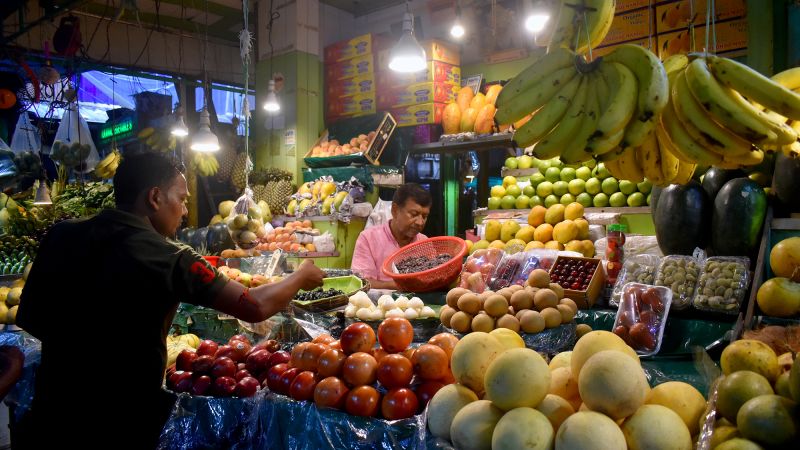A recent study has highlighted the profound impact that extreme weather events, driven by climate change, are having on global food prices. Researchers have found that the extent of these weather events is unprecedented, with certain occurrences surpassing any historical benchmarks prior to the year 2020. Under the leadership of Maximillian Kotz from the Barcelona Supercomputer Center, the study establishes a direct correlation between the increasing costs of basic food products and the erratic weather conditions induced by climate change.
The rising prices of food—from staples such as potatoes in the United Kingdom to coffee in Brazil—are indicative of a larger pattern influenced by extreme weather phenomena. The study delves into 16 significant instances across 18 countries where short-term price spikes occurred between 2022 and 2024 due to severe conditions such as extreme heat, prolonged droughts, or excessive rainfall. For instance, cabbage prices in South Korea saw a dramatic increase of 70% in September 2023 compared to the preceding year, primarily as a consequence of a heatwave experienced in August of the same year.
Furthermore, Europe witnessed a staggering 50% inflation in olive oil prices in January 2024, attributed to the extended drought conditions that afflicted Italy and Spain during the years 2022 and 2023. In Japan, rice prices rose by 48% in September 2024 following what has been described as one of the hottest heatwaves since regional records began in 1946. These examples underscore the immediate and tangible effects that climate-related weather events can impose on food supply and pricing.
In West Africa, Ghana and Ivory Coast, key players in cocoa production, experienced a heatwave in early 2024 that was exacerbated by climate change, raising global cocoa prices by an astounding 280% in April of that year. This dramatic increase illustrates how vulnerable significant agricultural sectors can be to climatic shifts and emphasizes the interconnectedness of global food systems.
The study also throws light on the broader societal implications arising from these increases in food prices. With healthier food options often costing more than less nutritious alternatives, low-income households may be forced to reduce their consumption of fruits and vegetables as a financial response to climbing food costs. This dietary shift can lead to severe health risks, including malnutrition and chronic health conditions such as Type 2 diabetes and heart disease. As food prices escalate, the potential for societal instability rises. Extreme weather patterns can drive overall inflation, leading to economic distress that manifests in political unrest and social discord.
Kotz articulates a troubling reality: until the world achieves net-zero emissions, extreme weather will continue to escalate and wreak havoc on agricultural output, pushing food prices higher. He adds that as food prices rise, people are increasingly aware of the daily impacts of climate change, and many rank rising food costs as the second most significant climate impact they experience in their lives, right after extreme heat.
Tim Benton, a professor of population ecology at the University of Leeds, reinforces the study’s findings, indicating that supply shortfalls due to extreme weather events inherently drive up market prices, ultimately affecting consumers. His comments underscore that instability in global trade, exacerbated by conflicts and trade disputes, further complicates the matter.
Looking forward, Benton warns that we may be entering a period marked by ongoing volatility, characterizing this as a “cost-of-living crisis.” Prominent challenges lie ahead if urgent steps are not taken to address climate change. The publication of this study comes at a critical moment as world leaders convene for the UN Food Systems Summit Stocktake conference in Addis Ababa, Ethiopia. Their discussions will focus on the various threats facing the global food system, the implications of climate change, and the urgent need for collective action to ensure food security and sustainability.











